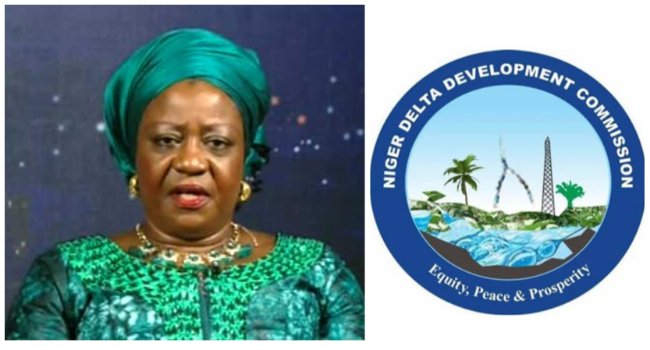By METROWATCH Reporter
The Niger Delta Development Commission (NDDC), has been urged to prioritize key sectors that would have huge impact on the standard of living of the people of the Niger Delta, namely: infrastructure, education, health and agriculture.
Participants at the just-concluded Board/Management Retreat organized by the Niger Delta Development Commission (NDDC), who made the resolution at end of the parley, also asked the Commission to pay particular attention to the security of lives and property and the protection of the poor and weak in the society.
The resolutions came after series of presentations, group discussions and deliberations on critical topics relevant for ensuring the Board is abreast of the imperatives of its role, its relationship with the Ministry and Public Service Provisions in handling Government business in addition to repositioning the Commission for effective service delivery.
They further resolved that the NDDC should consider implementing legacy projects that have the potential to benefit the people of the region, reduce poverty and improve the conditions of living of the people.
In a communique issued at the end of the four-day retreat was held at the Ibom ICON Hotel & Golf Resort in Uyo, Akwa Ibom State, from 19th-22nd January, 2023, the participants at the retreat were of the view that the NDDC should improve its youths and women empowerment programmes.
The retreat equally resolved that in its determination to take the Region to greater heights, the NDDC “shall engage in Public Private partnership arrangements with State Governments, International Oil Companies (IOCs) as well as International Donor Agencies with a view to executing mega projects for the Region.”
To achieve all these and even more, the retreat resolved that the Presidency should initiate the process of amending the NDDC (Establishment etc) Act 2000 to bring it in line with current challenges and realities.
The rest of the communique, issued by the Governing Board reads:
“The Niger Delta regional Masterplan should be revisited and reviewed having expired in 2020, to provide sustainable focus for the region.
“There should be a clear definition of roles and responsibilities according to the Establishment Act of both the Ministry and the Commission.
“There should be effective, strategic, timely communication and feedback between the Ministry and the Board.
“There should be due adherence to all extant Rules and Regulations, especially the NDDC Act and other Government Circulars as applicable to MDAs.
“There should be continuous orientation and training on standards, procedure and guidelines regulating the relationship between Ministries and statutory Boards.
“That statutory thresholds and due process requirements regarding Procurement processes should be strictly complied with, to ensure improvement in the Commission’s procurement process.
“That Board, Management and Ministry relationship requires effective and intentional stakeholder engagement to eliminate suspicion and grey areas.
“That proper NEEDS assessment should be carried out through consultation with relevant stakeholders to reflect the real and actual needs of the communities.
“The Board should prioritize transparency and accountability in the activities of the Commission by publishing regular reports on the Commission’s activities as well as being open to public scrutiny.
“There is a need for strategic stakeholder Management, effective communication and Conflict Management Plan respectively to facilitate the required stakeholder collaboration and synergy imperative for sustainable development of the region.
“There is a need for a well-articulated actionable Strategic Plan aimed at moving the NDDC forward in pursuit of its mandate
“The Commission should ensure the establishment and empowerment of a healthy and robust Risk Management Unit, which would provide Management with an impartial and unbiased picture of the Commission’s state of affairs at all times.
“The NDDC should put in place a system that ensures that statutory revenues due to the NDDC in accordance with the Act are collected.
“The NDDC needs to strengthen monitoring and evaluation of its projects to ensure programme effectiveness and efficiency.”










